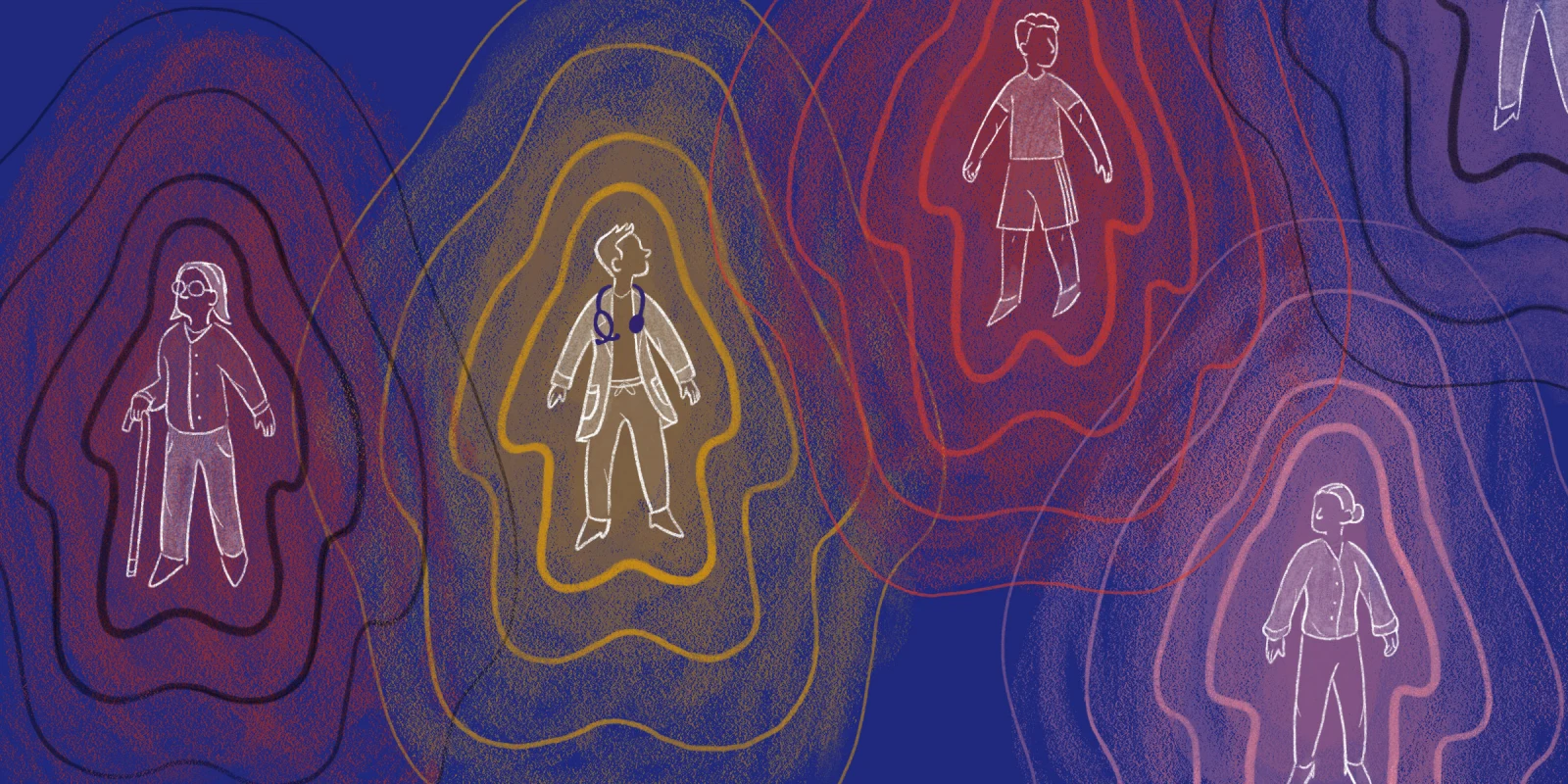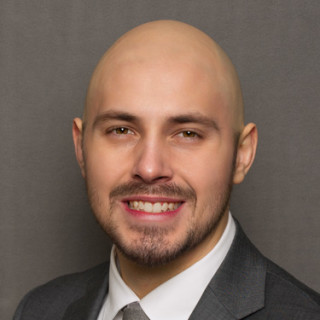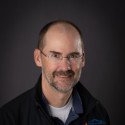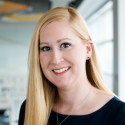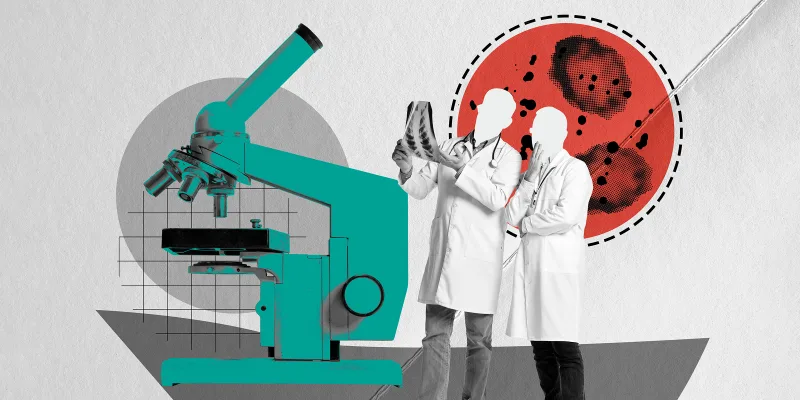In August 2024, I married the love of my life. It was the weekend before I began my rotation at the local medical examiner's office. Without question, it was my best weekend ever. Our "mini-moon" — a brief respite before the realities of residency called us back — was a whirlwind of joy, gratitude, and love. I returned to my training recharged, albeit bracing myself for the intensity of forensic pathology.
Yet, as I stepped into the medical examiner's office, I could not have predicted the profound intertwining of my professional calling and personal life that awaited me. Over the next several weeks, I found myself deeply immersed in the stark realities of death — a field where my job was to give the voiceless their due and uncover stories of tragedy, violence, and illness. At the same time, life was unfolding in unexpected and challenging ways, as my dad's health began to swiftly falter. In November, he passed away peacefully at the age of 79, surrounded by his loved ones. In just three months, the best weekend of my life was followed by the worst.
This juxtaposition of life and death led me to a realization that has since anchored my path. Forensic pathology is not just my vocation; it is the culmination of life's events — both joyous and tragic — that brought me to a place where I could find meaning, serve others, and honor my dad's memory.
Forensic pathologists have been aptly described as being like family medicine physicians for the deceased. At its core, forensic pathology involves determining the cause, mechanism, and manner of death through autopsy — the final physical examination one undergoes in life. Derived from the Greek word "autopsia," meaning "seeing with one's own eyes," autopsy is the cornerstone of this specialty. It integrates medical knowledge, pathology, laboratory medicine, and sociolegal considerations to uncover the truths behind death.
Despite its importance, the field faces a dire workforce shortage. As of 2022, the U.S. had approximately 750 full-time forensic pathologists, far short of the number required to meet demand. Elevated rates of reportable deaths have only exacerbated this gap, and estimates suggest the need for at least double the current workforce to maintain manageable caseloads and minimum autopsy standards. Unfortunately, current recruiting efforts are insufficient to account for the growing U.S. population. Unless funding or educational resources are significantly improved, the workforce shortage will continue to be exacerbated, leaving more deaths unexamined.
From Day 1 at the office, I was captivated. The clarity of purpose and the precise focus on uncovering truths for the deceased felt refreshing after years of feeling adrift in other specialties. Each autopsy was an opportunity to piece together a puzzle. By month's end, I felt at peace — not because the work was easy, but because it was meaningful. I had found my lane.
This vocational clarity stood in stark contrast to the chaos of my personal life. My dad, who had generally been in good health, began experiencing troubling symptoms. Though he often avoided burdening others, the severity of his condition must have deeply scared him, and he finally informed us. A few weeks after my wedding, I visited my parents after finishing my assigned autopsy that morning. His lab results came back, showing acute renal failure.
We took him to the ER, and I contacted his nephrology clinic to confirm the need for urgent inpatient evaluation. Fortunately, I was about to start my rotation at this hospital and contacted the renal pathologist assigned to his biopsy. The following Monday, the renal pathologist and I reviewed the slides, which showed crescentic glomerulonephritis associated with ANCA vasculitis. I was shocked but grateful for the alignment of events – my clinical rotation at the same hospital my father was admitted to – that enabled me to expedite his care.
After this admission, he was discharged home under close watch. Treatment with steroids and chemotherapy was started, but his health continued to decline. He began retaining fluid, and his breathing deteriorated; he was essentially drowning as fluid filled his lungs. In hindsight, dialysis should have been started sooner, but it wouldn't have changed the outcome.
We rushed him back to the hospital, where he was admitted to the ICU, and dialysis was initiated. Over a few days, nearly 10 liters of fluid were removed, but he wound up intubated due to poor oxygenation. Sitting by his bedside, I found myself navigating an unfamiliar role conflict. As a physician, I understood the complexities of his condition. But as his son, I was overwhelmed by fear and helplessness.
During his hospitalization, he developed a large pericardial effusion caused by persistent uremia, requiring urgent pericardiocentesis. Unfortunately, a complication arose: his stomach was inadvertently pierced during the procedure. This was detected days later, requiring urgent surgery, which was thankfully a success. By the end of these harrowing events, he was stable enough to be extubated and leave the ICU but remained incredibly weak. The safest place for his continued recovery was an inpatient specialty rehab facility.
We thought we'd be able to get him back home. His wife, children, and grandchild visited frequently to keep him company. He fought hard, but there comes a point when the body, the mind, and the spirit can no longer fight. Death is the only guarantee in life, after all.
The Monday before my dad passed away, I FaceTimed him to share the news that I had accepted a forensic pathology fellowship at the very medical examiner's office where I had rotated. His reaction was filled with pride and excitement — as if we both finally had closure. For years, he had worried about my future, hoping I would find a career that brought me both joy and stability. That conversation, in his final days, was a profound moment of connection. It symbolized the fulfillment of his hopes and a milestone in my journey.
Forensic pathology, paradoxically, has taught me more about life than any other professional experience. By examining the dead, I have learned to value the relationships and moments that make life meaningful. My dad's illness and passing deepened this perspective, reinforcing my commitment to living with purpose.
Forensic pathology is not just a career choice. In the faces of those I serve — both the living and the dead — I see the interconnectedness of our stories and the reasons that, often unknowingly, guide us forward. And in this, I find peace.
Rest In Peace, Dad. I love you and miss you.
Casey Schukow, DO, is a second-year resident pathologist at Corewell Health William Beaumont University Hospital in Royal Oak, Michigan. Dr. Schukow has no financial conflicts of interest to disclose, but if you'd like to learn more about him, please follow the link to his online CV here. For more information about Paul Alexander Schukow (July 6th, 1945 – November 30th, 2024), please follow the link to his obituary here.
Illustration by Diana Connolly
